- Home
- Thomas H. Cook
Into the Web Page 16
Into the Web Read online
Page 16
“Where are you going with this, Dad?”
“It’s just one of them ‘observations’ you’re always talking about, Roy. When something’s on your mind, you notice things. Like pregnant women when your wife is pregnant. If something’s gnawing at you, you notice everything that reminds you of it. Even over twenty years, it keeps gnawing. And so you keep noticing things. Little things or big things. It don’t matter. Something about it don’t let you rest.”
His eyes narrowed and I saw that he was coming to his point.
“Doc Poole,” he said. “If they was something off about all this business with Gloria, he’d have noticed it. It would have kept on gnawing at him.” He tapped the side of his emaciated skull. “Up here.”
“I don’t know, Dad, Doc Poole might—”
“What Porterfield said struck in Poole’s craw. I bet other things stuck in it too. Things about Gloria, maybe.”
“Yes, but …”
“You check with Poole, Roy,” my father said in a tone that made it clear he would brook no argument.
I started to protest, but my father turned abruptly, like a general from a subordinate, the order given and thus beyond both refusal and appeal.
Chapter Twenty-One
I didn’t find Doc Poole at his office when I went there early the next morning.
A fat woman in a white uniform told me that he’d gone up to Waylord School, to a summer session where kids who’d been held back the year before could try again at the subjects they’d failed in hope of passing a test at the end of the summer and returning to school with their own class in the fall. It was something new, the nurse told me, started by Doc Poole and more or less subsidized by him.
“Doc’s an old bachelor, you know,” the woman said with a wry wink, “so he’s got nothing better to spend his money on.”
He was standing beneath the largely inadequate shade of a tall pine, when I reached the school an hour later. A group of children were playing in a dusty field not far away, dressed in the hand-me-down clothes of Waylord.
“Morning, Doc,” I said as I came up beside him.
“Hey there, Roy.” He was clearly surprised to see me, but there was also faint alarm in his expression. “Is it Jesse? You need me to—”
“No, no,” I said hastily. “He’s the same.”
I glanced out over the field to where the children rushed about in the sweltering heat, boys in torn trousers, girls in faded shorts. It took only a slight turn of mind for me to imagine my father among them, dashing across the field to catch a tattered softball, a Waylord boy, with Waylord grit, determined to fight bare-knuckled to the end.
“They play hard, Waylord kids,” I said.
“Yes, they do.” Doc Poole kept his eyes on the field. “You never cared for sports, did you, Roy?”
“No, I tended to hole up in the library. It was my little fortress, I guess.”
Doc Poole looked at me quizzically. “Against what?”
The answer occurred to me so swiftly, I must have known it all my life. “Against my father,” I answered. “The library was the one place I knew he would never come to get me.”
“Why not?”
“Because it intimidated him,” I answered, surprised at how wily I’d been as a boy, how clever in the way I’d sought to best my father, to make him feel crude and inadequate. “I used to take books home just so he’d see them in my room. I used books like weapons. Threw them at him, like rocks.”
Doc Poole watched me, a country doctor’s long experience hovering in his wrinkled face. “Coming home’s not easy, is it, Roy?” he asked softly.
“You learn things, that’s for sure.”
He patted the empty metal chair beside him. “Take a load off. Watch the game awhile.”
I looked out toward the field. “It hasn’t changed much,” I said, “the way things are up here.”
“No, not much,” Doc Poole agreed. “It was hard enough when the mine was going. When it closed, it just got worse.”
“How’d you happen to settle here? In Kingdom County, I mean.”
“I was born in Kingdom County,” Doc Poole answered. “Came right back after medical school.”
“You never thought of going anywhere else?”
“No,” Doc Poole answered.
“It’s all I thought about. Getting away. Living anyplace but here.” I glanced to where a blackboard had been nailed to a tree, the parts of speech written out in yellow chalk. “Where’s the teacher?”
“She left last week. Got a better offer in Welch. I’m looking for someone to take over next fall.” He smiled. “Job’s open if you want it.”
I shook my head. “I’ve made my escape, Doc.”
Doc Poole’s eyes drifted back to me. “What’s on your mind, Roy? Why’d you drive all the way up here?”
“I mentioned what Porterfield said to you about the murders to my father and it got him thinking about things. He’s pretty fired up. Wants to know all he can. The fact is, I don’t really expect to find anything new. But I’m going through the motions. I went over the file on the case. I even talked to Porterfield himself, but I didn’t get anything out of that.” I offered a cold laugh. “Except that he believes my father came with Archie that night.”
Doc Poole looked at me, astonished. “What?”
I waved my hand dismissively. “Anyway, my father wanted me to talk to you. He seems to think you may be able to help clear up a few things. About Gloria, in particular.”
“Gloria?”
“Well, you were with her that morning, right?”
“Yes, I told her that her parents were both dead. That Archie had confessed to it all. She didn’t say much of anything, as I recall.” Doc Poole seemed to return to that distant morning, see again the small sunny room where he’d found Gloria hysterical in her bed. “I remember that she had her coat on. Even though she was under the covers. And little red rubber boots. Made me think if she’d just made it down the stairs and out the door before Archie got inside, that, well, we wouldn’t be sitting here right now talking about that night.” He thought a moment, then added, “And she had a little gold locket in her hand. Wouldn’t let go of it. Wallace finally pried it out of her fingers and dropped it in his pocket.” He seemed to see the locket disappear into Porterfield’s pocket. “Then he took Gloria over to his place. That’s where she stayed after that. I offered to take her home, let her stay with me, but Wallace said it was up to him to see after her. He said he was her legal guardian.”
“Porterfield took Gloria to his own house? Why?”
“Because he was her legal guardian.”
“Porterfield was Gloria’s legal guardian?”
Doc Poole smiled. “I was surprised by that myself. Wondered over it so much, I finally went down to the courthouse and looked it up. Turns out it was true. He’d been named Gloria’s legal guardian just a few days after she was born. He was the executor of the estate too, so with Horace and his wife both dead, Wallace had to see after everything. Not only Gloria but …”
“Everything she owned,” I said, repeating my father’s words. “Why would Porterfield have been the executor of Horace Kellogg’s estate?”
Doc Poole shrugged.
“Were he and Horace Kellogg close friends?”
“They may have been, but I didn’t see them together all that often. I saw Wallace with Lavenia from time to time, but not much with Horace.”
“With Lavenia?”
“That’s right. She’d drop by the sheriff’s office from time to time.”
“Alone?”
“Sometimes with Gloria, but usually alone. When Gloria was a little girl, Lavenia sometimes left her there. In the office there with Wallace, I mean. She seemed to trust him.”
“I didn’t think anyone trusted Wallace Porterfield.”
Doc Poole chuckled. “Everybody trusts someone, Roy. And I guess Lavenia, for whatever reason, felt that Wallace would take care of Gloria. Which he did, I guess. When
she was a child, and later too, after the murders.”
“Until he took her to Daytonville,” I pointed out. “Why did he take her there?”
“Because she was in such bad shape. He couldn’t take care of her anymore.”
“What do you mean, ‘bad shape’?”
“She kept trying to kill herself. After Archie, I mean. That’s why Porterfield took her to Daytonville. So she could be looked after full-time.”
“He had her committed?”
“Yes, he did,” Doc Poole replied. “Gloria was sixteen, Roy. A minor. Wallace was her legal guardian.”
“So he could just take her to the state asylum and leave her there?”
“Well, no, not exactly. It had to be certified. Gloria’s condition. That she was a danger to herself. State law says a doctor has to do that. But once I signed the paper, Wallace could commit her.”
“You certified Gloria?”
Doc Poole was silent a moment. Then, softly, he said, “Yes.”
“Just on Porterfield’s recommendation?”
“Not on that alone, no. But I had very much in mind the fact that Archie had killed himself not long before. Another young person dead, I didn’t want that. There were already too many people dead in this thing. I sure didn’t want Gloria added to the list.”
“So she was definitely suicidal?”
“Wallace said she was,” Doc Poole answered. “He keeps a gun cabinet in his living room. Full of pistols, rifles. Must have been twenty or thirty guns. He showed me where Gloria had tried to break into the cabinet. Desperate to get her hands on a gun. To use on herself, that’s what Wallace said. She wanted to ‘be with that boy,’ as he put it.”
“Did you examine Gloria?”
“Of course I did,” Doc Poole answered. “But to tell you the truth, there wasn’t much to see when it came to Gloria. The whole time I tried to talk to her, she just sat at the dining room table there in Wallace’s house. Head down. Hands in her lap. Pretty much out of it, as far as I could determine.”
“Did she say anything?”
“I asked her a few questions. I’d never been asked to certify anybody before, and I figured that once she was in Daytonville, the people there would take a closer look at her. Professional people.” He looked at me pointedly, so that I knew he was now coming to the real reason he’d acted so quickly in regard to Gloria’s commitment. “The fact is, Gloria didn’t need to be living in that house with Wallace Porterfield.”
“Why?”
He seemed reluctant to answer, but after a moment his hesitancy was overcome, it seemed to me, by the demands of a larger truth. “Porterfield had a reputation, Roy. For liking … young girls. Teenage girls.” He seemed vaguely embarrassed by the details. “He’d gotten a few in the family way. Usually poor girls, or girls who didn’t have daddies or grown-up brothers to protect them. That’s the type Wallace went after. Girls with relatives or boyfriends in trouble with the law. I never got the idea that he … did anything to Gloria, but I figured it was better to get her away from him. I mean, with his wife dead and Lonnie in the army, it was just the two of them in that house.”
“So you signed the commitment papers.”
“Yes,” Doc Poole answered. “And Wallace took her right then.” The old doctor appeared to see again what he’d seen that day, Porterfield slowly leading Gloria Kellogg to his car, placing her inside it, driving away. “Just put her in his patrol car and drove her to Daytonville.”
“Did you ever see Gloria again?”
“One time,” Doc Poole answered. “I drove up to Daytonville about two weeks later. She was in a bare room. Just a bed. Dressed in a hospital gown. She was pretty out of it. Drugged up, I think.”
“How long did she stay there?”
“Maybe a month or so. I got a letter from Daytonville. It said that she’d been released.”
“Released? To whom?”
“A woman. I don’t remember her name, but they’d know who she was, the people over in Daytonville. You could go over and ask them about it.”
“But would they be willing to tell me who she was?”
“Normally, no. But we’ll work around that.”
“How?”
Doc Poole smiled the smile of one who’d spent his life skirting bureaucratic hurdles. “I could tell them that you’re working for me, the county coroner. That you’re checking into something.”
I looked at him doubtfully. “Into what?”
“Into what you really are looking into, Roy,” Doc Poole replied. “An old murder case.”
“Just got shed of her,” my father said later that evening as we sat together at the supper table. The food on his plate was untouched. “Probably wasn’t nothing wrong with Gloria ’cept Porterfield needed to get rid of her. So he brung her over to Daytonvile and just left her to rot.”
“But she really may have needed professional help, Dad,” I countered. “It was Doc Poole who signed the papers, remember?”
This made no chink in the armor of my father’s certainty.
“Just shipped her off when he was done with her,” he insisted. “Shipped her off and kept it a secret. Locked her up so nobody would know where she was.”
“People knew where Gloria was. It was in the paper, Dad. That she was in Daytonville.”
“Didn’t want nobody to know what he’d done,” my father said as if he hadn’t heard me, though I knew he had. “Must of had people down there working for him.”
“Down where?”
“In the nuthouse,” my father answered. “Must have had somebody down there helping him out.” He raised an empty fork, then lowered it. His eyes cut over to me. “Porterfield never did nothing without he thought it through first. So they had to be somebody in on it down there.”
“In on what?”
“Whatever he was fixing to do,” my father exclaimed. He appeared irritated with my denseness, the fact that the conspiracy was not as clear to me as it was to him. “Whatever he had to do to keep it all for hisself, Roy. Everything that would have gone to Horace Kellogg’s daughter.”
I smiled, but only as a way of covering the alarm I felt. “I think you’re getting a little ahead of yourself, Dad,” I said cautiously. “You don’t have any real evidence that Wallace Porterfield was trying to get control of Gloria’s inheritance.”
My father ignited. “Well, he sold off the house, didn’t he? That big old house and everything in it?” He gave a bitter snort. “Everybody figured he was doing it for Gloria. Selling it all, giving her the money. But he was doing it for hisself. And with Gloria locked up at Daytonville, he had a free hand. Wasn’t nobody to stop him after that. Not once Gloria was out of the way.”
“But she wasn’t out of the way,” I countered. “She was in Daytonville. But even then, she wasn’t there for long. If Porterfield had really wanted Gloria out of the way, wouldn’t he have kept her in Daytonville instead of allowing her to be released?”
“Released to some woman,” my father said, repeating what I’d told him a few minutes before.
“That’s right.”
“Then that there woman must have been the one that was in on what Porterfield was up to,” my father said triumphantly.
“There’s no evidence Porterfield was up to anything, Dad.” I sat back, stared at him, at the ire flashing in his eyes. “You hate Wallace Porterfield more than you ever hated anybody, don’t you?”
He pushed his plate away, plucked a cigarette from the pack in his pocket. “He ain’t fit to live, you ask me.” He lit the cigarette and took a long draw, his gaunt face ringed in wisps of feathery smoke. “We got to find out what Porterfield done to Horace Kellogg’s daughter. We got to go over to Daytonville and find out.” He crushed the cigarette into the mound of mashed potatoes that rested, uneaten, on his plate. “I got at least that much left in me. The strength for one last trip.”
I might have argued that he didn’t, that the yellow had deepened in his eyes, that he no longer ate enough
to sustain himself, that he was now in the last stage of his disease. I might have encouraged him to withdraw from this futile battle, seek, in the final days of his life, whatever serenity might be possible. But watching him at that moment, the way his eyes darted about, the twitching in his hands, I realized that it was not serenity my father longed for. It was the fire and sword of battle, the high hope of facing Wallace Porterfield as he had so many years before, repeating the words he’d blurted out then, You’re a liar. And a thief.
Chapter Twenty-Two
And so, as we set out for Daytonville, I knew that this final trip was in some sense metaphorical, a last voyage taken with my father across the charred landscape of his youth. I looked at his crooked hands, smelled the odor of cigarettes in his skin and hair, and sensed the brutal, smoldering core of him, the wrong he’d suffered, distant and unrightable, but which he now sought beyond all reason to avenge. To get Wallace Porterfield was his only goal, the one blaze that still burned in him, and for which he seemed perfectly willing to devote whatever energy was left in him, the flame of retribution so greedy and voracious, so much the firestorm that propelled him, that I took it for the only one.
“I been thinking about something you told me,” he said as we turned onto Route 6, the road that would finally wind its way through the mountains, then across a narrow valley, and terminate in Daytonville.
“What’s that?”
“Porterfield that night,” my father answered. “In Horace Kellogg’s house. Was he in there a long time? By hisself, I mean. Before Doc Poole come by?”
“About thirty minutes, I guess,” I said, trying to recall what Porterfield had written in his report.
“Thirty minutes,” my father mused. “Wonder what he was doing all that time.”
“It could have been anything, Dad. He went through the whole house, I imagine. And Gloria was in a terrible state. He probably spent a little time trying to calm her down before he called Doc Poole.”
“Left Archie settin’ outside in his car all that time. Handcuffed and just settin’ there.” He looked at me. “Never even called for Charlie Groom. That deputy he had back then. Don’t that seem peculiar? Here he is, Sheriff Wallace Porterfield with two dead bodies, a girl clear out of her mind, and the guy that did the killing settin’ in a car, and he don’t call for no help. Don’t call nobody for thirty minutes. Why not, Roy?” Before I could answer, he added, “Because he didn’t want nobody in that house with him, that’s why. Because he was up to something.”

 The Interrogation
The Interrogation Sacrificial Ground
Sacrificial Ground The Fate of Katherine Carr
The Fate of Katherine Carr What's In A Name
What's In A Name Blood Innocents
Blood Innocents Peril
Peril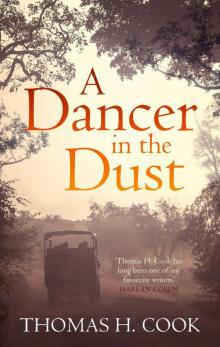 A Dancer In the Dust
A Dancer In the Dust Breakheart Hill
Breakheart Hill The Chatham School Affair
The Chatham School Affair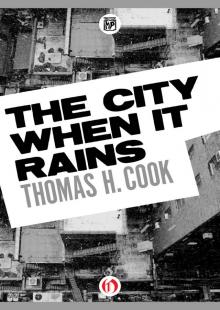 The City When It Rains
The City When It Rains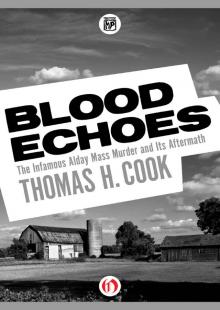 Blood Echoes
Blood Echoes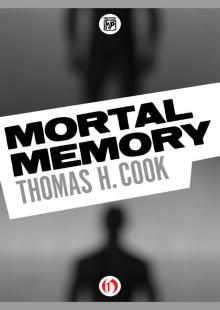 Mortal Memory
Mortal Memory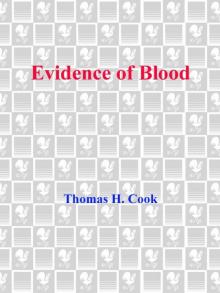 Evidence of Blood
Evidence of Blood Into the Web
Into the Web The Crime of Julian Wells
The Crime of Julian Wells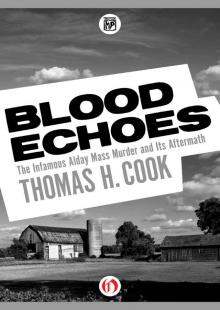 Blood Echoes: The Infamous Alday Mass Murder and Its Aftermath
Blood Echoes: The Infamous Alday Mass Murder and Its Aftermath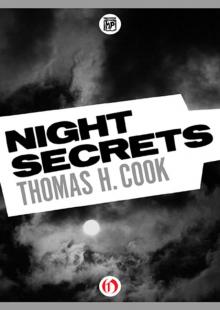 Night Secrets
Night Secrets Places in the Dark
Places in the Dark The Orchids
The Orchids Elena
Elena Streets of Fire
Streets of Fire Instruments of Night
Instruments of Night Sacrificial Ground fc-1
Sacrificial Ground fc-1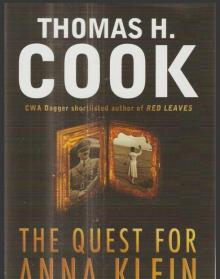 The Quest for Anna Klein
The Quest for Anna Klein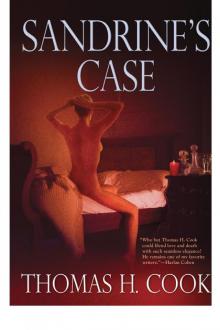 Sandrine's Case
Sandrine's Case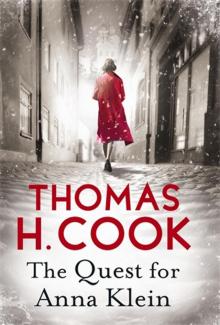 Quest for Anna Klein, The
Quest for Anna Klein, The Fatherhood
Fatherhood Flesh and Blood
Flesh and Blood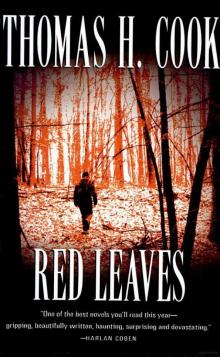 Red Leaves
Red Leaves